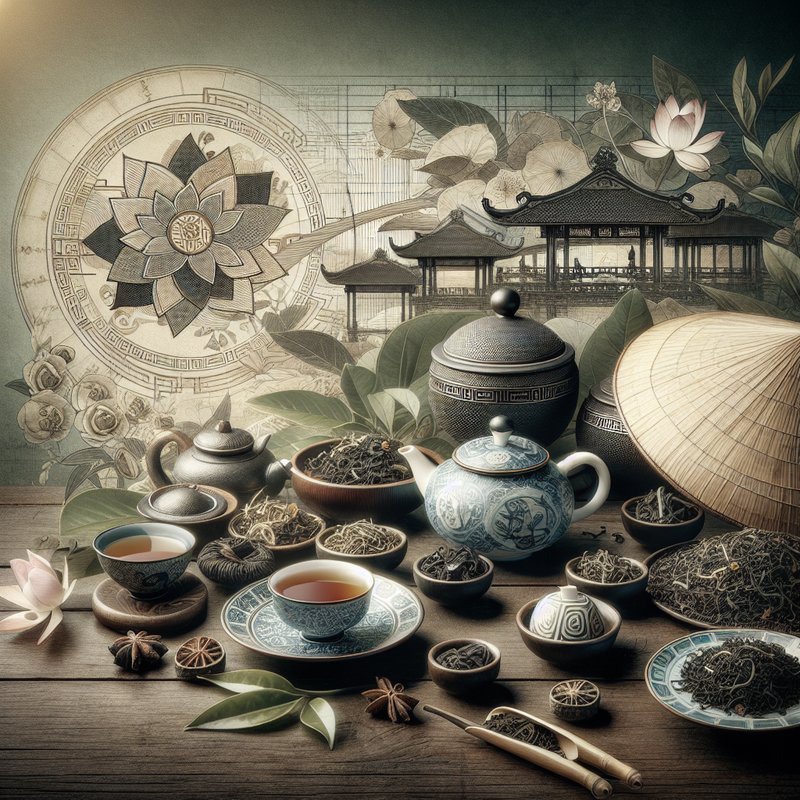The Historical Roots of Vietnamese Tea

The origins of tea in Vietnam trace back over a millennium, with influences from neighboring China and indigenous traditions intersecting to create a unique tea culture. As one of the earliest cultures to adopt tea drinking, Vietnam’s tea history is deeply woven into the fabric of its society and everyday life.
Throughout history, tea has played an important role in both the social and economic realms of Vietnamese life. Serving as a symbol of hospitality, respect, and spiritual reflection, tea was commonly used during religious ceremonies and family gatherings. Its profound historic significance continues to resonate through the Vietnamese culture of today.
Diverse Varieties of Vietnamese Tea

Vietnam’s varied geography and climate contribute to a diverse selection of tea types grown across the country. From the highlands of Thai Nguyen, renowned for its exquisite green tea, to the aromatic jasmine teas of the northern provinces, each region cultivates its distinct tea profile, celebrating the local terroir.
Tea connoisseurs from around the world are increasingly discovering Vietnamese tea for its distinctive flavors and high quality. As globalization opens up international markets, Vietnamese tea is emerging prominently, attracting both traditional enthusiasts and modern innovators alike.
Ceremonial Practices and Cultural Significance

The art of serving and enjoying tea in Vietnam is steeped in tradition. From the elaborate tea ceremonies popular in royal courts to the simple, everyday practices observed in rural villages, the preparation and presentation of tea are regarded as an expression of both cultural pride and personal connection.
Tea ceremonies often serve as an avenue for meditation and contemplation, enhancing spiritual well-being. They embody the Vietnamese values of harmony and hospitality, with preparations and rituals handed down from generation to generation, fostering a sense of continuity and cultural preservation.
Modern Influences and the Future of Vietnamese Tea

In recent years, Vietnamese tea culture has evolved to embrace modern trends, adapting to the changing tastes and lifestyles of younger generations. Tea houses and cafes have sprung up across urban centers, offering not only traditional brews but also innovative concoctions that appeal to contemporary palates.
The fusion of traditional and modern elements reflects a broader movement within Vietnam, as the country negotiates its place within the global cultural tapestry. The future of Vietnamese tea lies in its ability to blend its rich history with the creative energies of today’s tea enthusiasts, promising to remain a vital cultural emblem for generations to come.

Leave a Reply